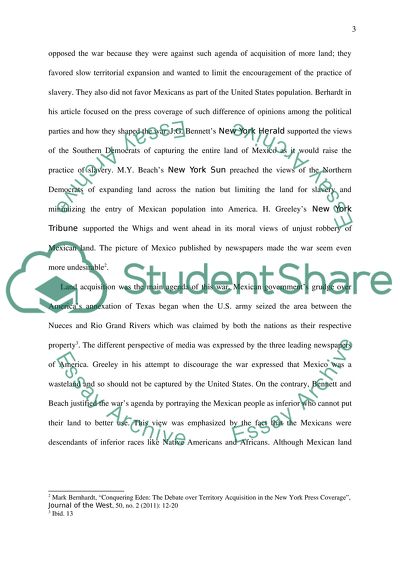Cite this document
(“The Mexican-American War (1846-1848) Research Paper”, n.d.)
Retrieved from https://studentshare.org/history/1458768-the-mexican-american-war-1846-1848
Retrieved from https://studentshare.org/history/1458768-the-mexican-american-war-1846-1848
(The Mexican-American War (1846-1848) Research Paper)
https://studentshare.org/history/1458768-the-mexican-american-war-1846-1848.
https://studentshare.org/history/1458768-the-mexican-american-war-1846-1848.
“The Mexican-American War (1846-1848) Research Paper”, n.d. https://studentshare.org/history/1458768-the-mexican-american-war-1846-1848.


